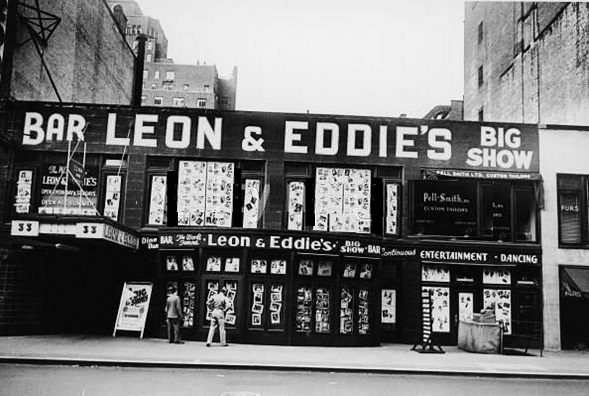

|
It was at 33 West 52d Street on the site later occupied by Toots Shor's restaurant. For several years in the nineteen thirties, Mr. Shor officiated at Leon & Eddie's as its daytime manager and occasional bouncer.
In the short block between Fifth and Sixth Avenue (later to be upgraded as the Avenue of the Americas) were crowded a score or more of cabarets, cafes and restaurants, and at the heart of the street, once referred to as “America's Montmartre,” stood Leon & Eddie's, perhaps the biggest and most boisterous of them all.
Leon Enken, a short stocky man who was said to bear a strong resemblance physically to Mayor Fiorello H. LaGuardia, usually looked after the business end of the nightclub affairs. His partner, Eddie Davis, a gravel‐voiced singer with a repertory of a thousand songs, was the club's master of ceremonies and chief entertainer.
Leon, who was horn in Montreal, ran away from home and came to New York to start his career as a busboy. By the mid‐nineteen‐twenties he had become a head waiter. He met Eddie Davis when they were working in Atlantic City.
Mr. Davis recalled that he had come to New York in 1926 to open at the Everglades at Broadway and 48th Street and that Mr. Enken was then the head waiter at the Parody Club across the street, where the knockabout variety team of Lou Clayton, Eddie Jackson and Jimmy Durante was the top act.
According to Mr. Davis, Mr. Enken was the favorite head waiter of the team and wherever they went, he went too. His value to the team was said to be that he knew who was important in the underworld and social world of Broadway. This meant that Mr. Enken knew who was to get the ringside tables in the nightclubs where Clayton, Jackson and Durante performed and who it was safe to relegate to the small tables at the rear near the waiters' service stand.
Early in 1928, Mr. Enken joined forces with Mr. Davis to open a speakeasy in the basement of a brownstone at 18 West 52d Street. Mr. Enken had the money — $1,900 — and Mr. Davis had the talent for making the customers return.
In the beginning, though, the going was hard and the two partners drew only $10 each as salary every Saturday night. Mr. Enken once told an interviewer of those early days:
“I tell you the truth, I was scared to death. I was scared I would fail. I'd been pretty lucky and failure rankled. I hated it. I couldn't sleep nights. Then Eddie sang a song one night, a kind of naughty song, and from then on, like magic, we made money.”
The basement speakeasy was like a hundred others in the area. The hopeful patron walked down three steps and rang a bell. If he was recognized he got in. However, Leon & Eddie's was known as a classy place. Ginger ale sold for $1.25 a split and gentlemen sometimes drank champagne from a lady's slipper.
In 1932, when it appeared that legalized drinking might be coming back, Leon & Eddie's moved across the street to operate in the open as a restaurant and nightclub in a two story building at No. 33. With the repeal of Prohibition a year later, the place started to boom.
In its new quarters, Leon & Eddie's could accommodate 500 persons. On weekdays, and especially in the summer, most of its customers were from out-of‐town, people who were attracted by the club's reputation for risqué entertainment and who wanted to cut loose in the big town.
On Sunday nights, however, the customers were more likely to be New Yorkers, especially people in show business. Leon & Eddie's soon developed the reputation of being a place where talented but relatively unknown entertainers could get a hearing.
In 1947, Leon & Eddie's, which was sending out 40,000 postcards a week to its mailing list, opened a branch in Palm Beach, Fla. The partnership soon came to an end because Mr. Enken wanted to concentrate his attention in Palm Beach, while Mr. Davis was content to remain in New York.
About two years after its opening, the Palm Beach venture failed and in 1953, Leon & Eddie's in New York, then being run solely by Mr. Davis, went into bankruptcy. The building was demolished in 1954 to make way for a parking lot. In December, 1961, Mr. Shor opened a new restaurant on that site.
Davis, who also was a singer and entertainer, and his partner, Leon Enken, opened their club in 1928 with an investment of $700. The Prohibition-era speak-easy seated up to 30 customers in a converted house once occupied by statesman Bernard Baruch.
In 1933, after the end of Prohibition, they moved a few doors away, next to the posh “21 Club,” to new quarters with a retractable roof, rising stage and room for 475 customers.
The club’s Sunday night celebrity parties attracted a large clientele of show business celebrities, such as George Jessel, Bob Hope, Red Skelton, Milton Berle, Helen Morgan, Jackie Gleason, Marie McDonald and Eydie Gorme.
One of the club’s first managers and bouncers was Toots Shor, who one day would open a restaurant at the same spot after Leon & Eddie’s closed.
“The WPA Guide to New York,” published in 1939, noted the cluster of nightclubs on the street, adding that “Out-of-towners favor Leon & Eddie’s, where Eddie packs them in with his shady ballads.”
Enken sold his share of the club to Davis in 1947. It closed in 1958 when Davis retired to Fort Lauderdale.
Adapted from the obituaries of Leon Enken (1964) and Eddie Davis (1987)
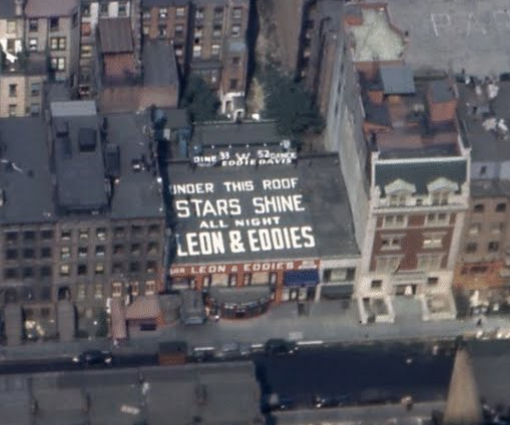
|
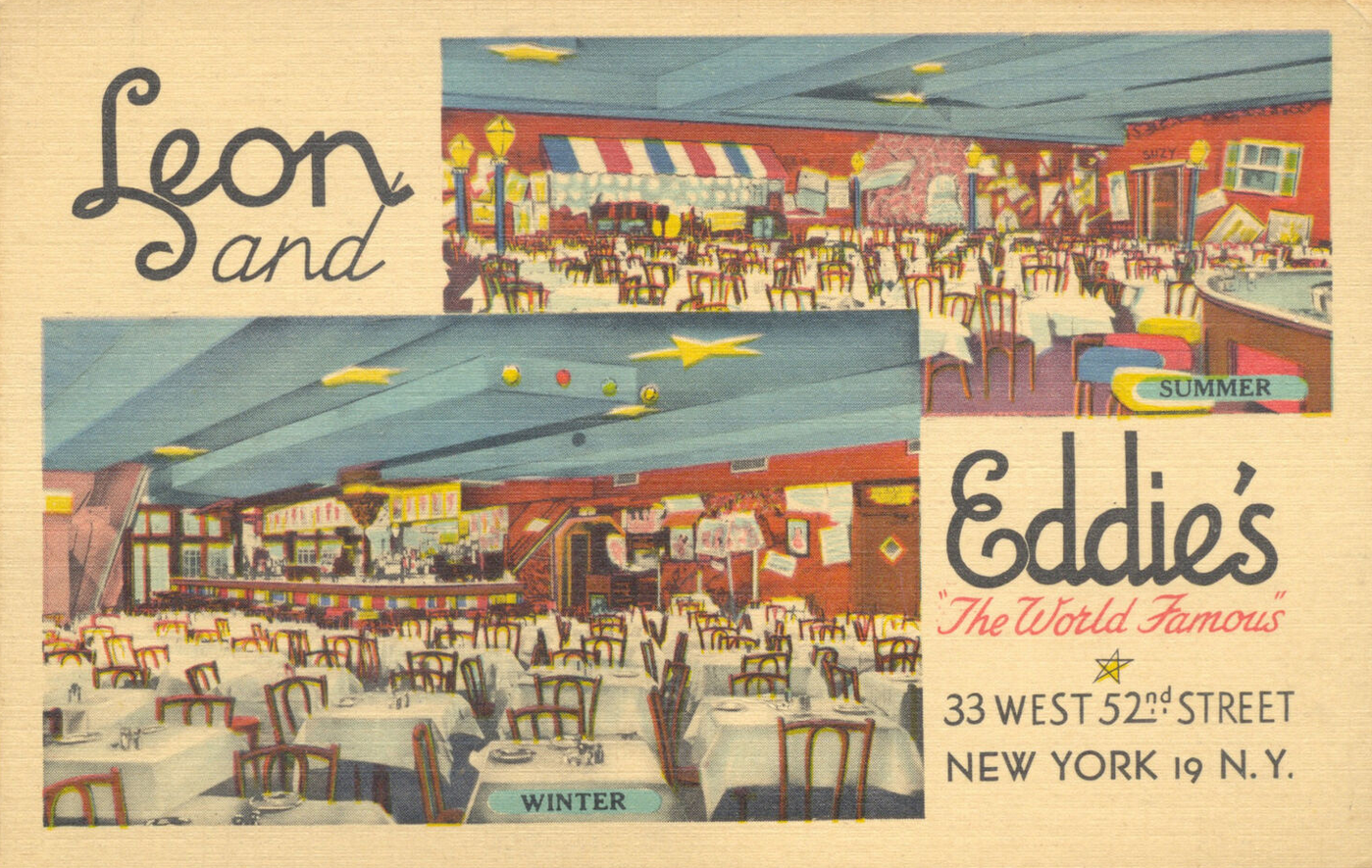
|
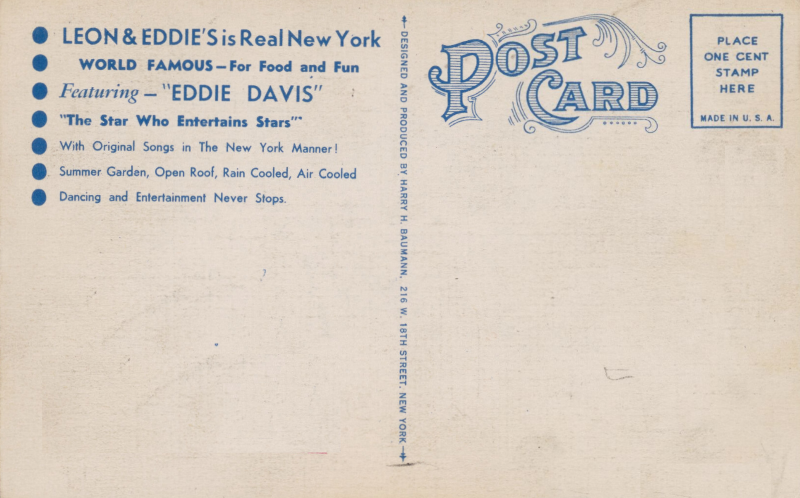
|
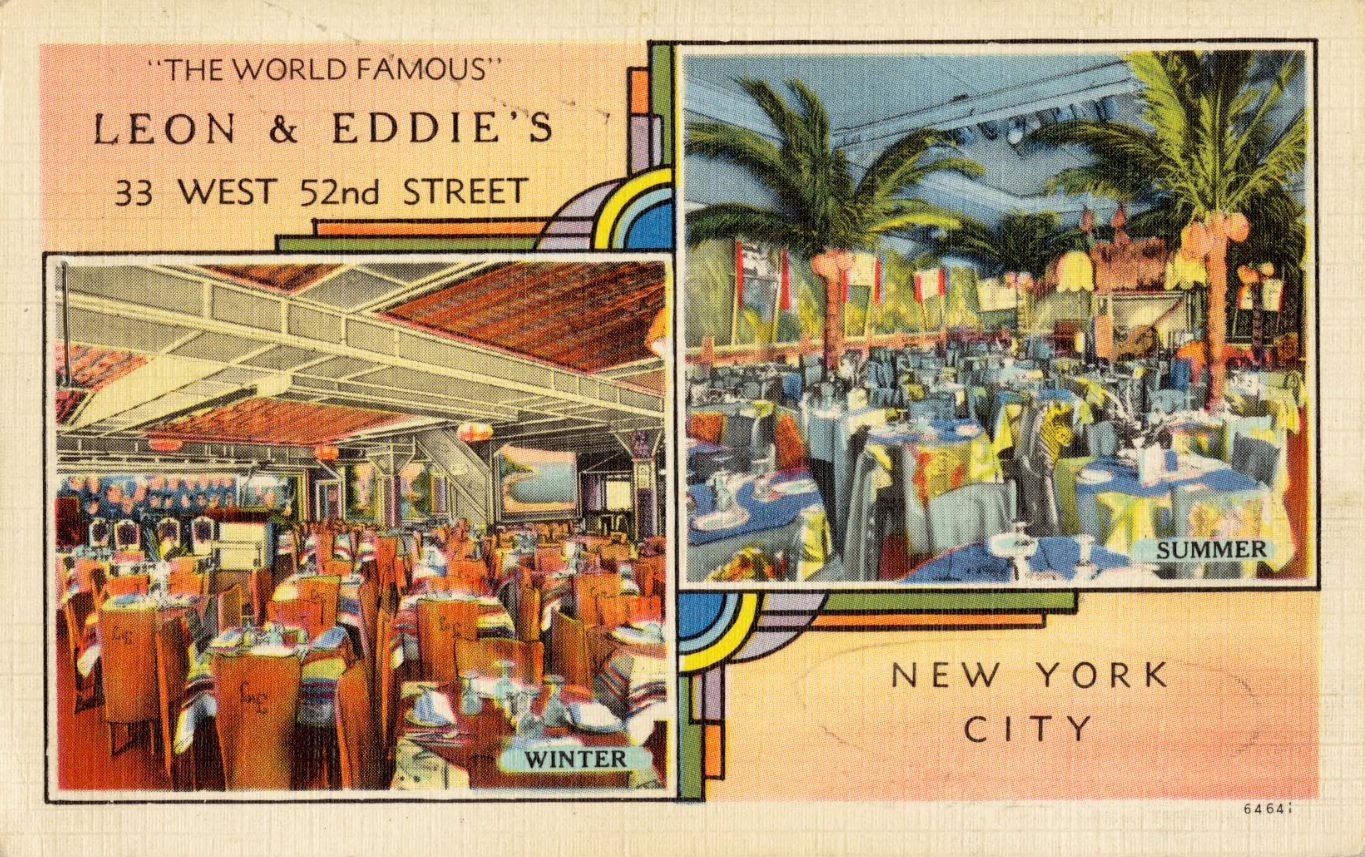
|
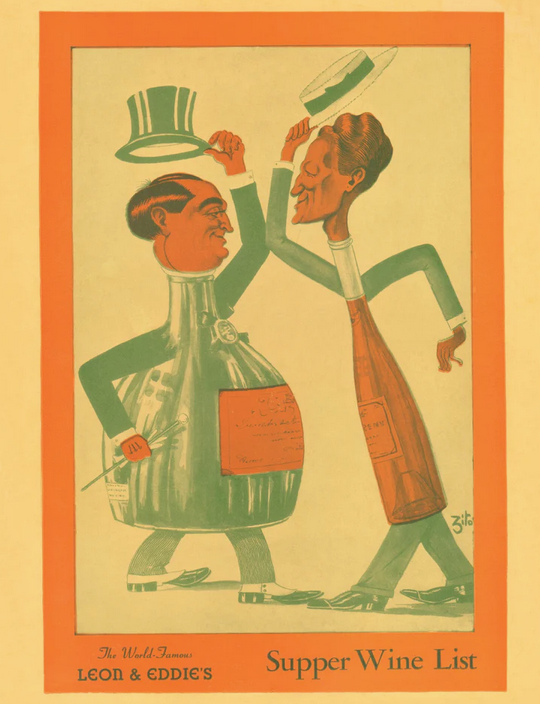
|
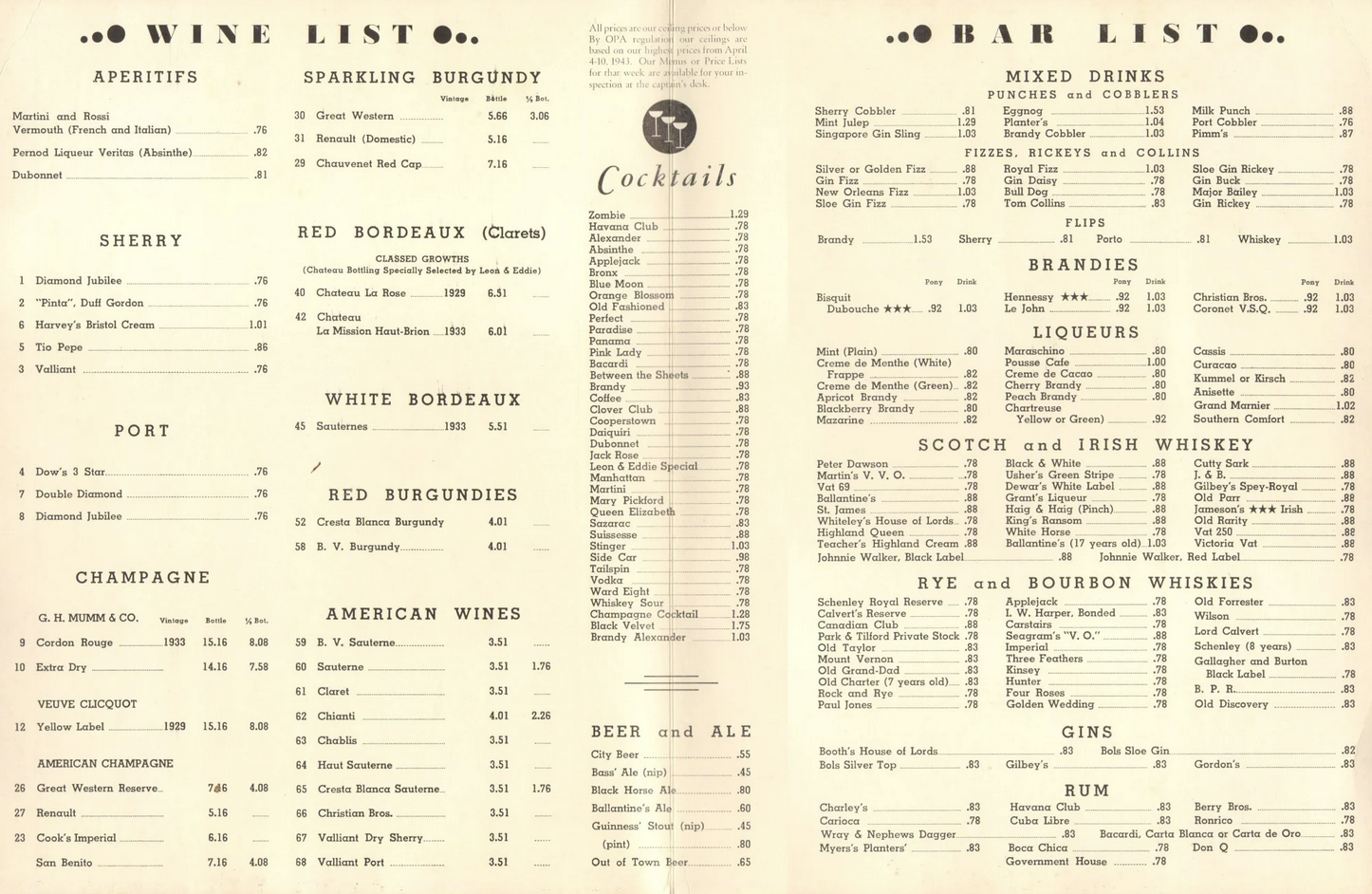
CLICK HERE FOR ENLARGED VIEW |
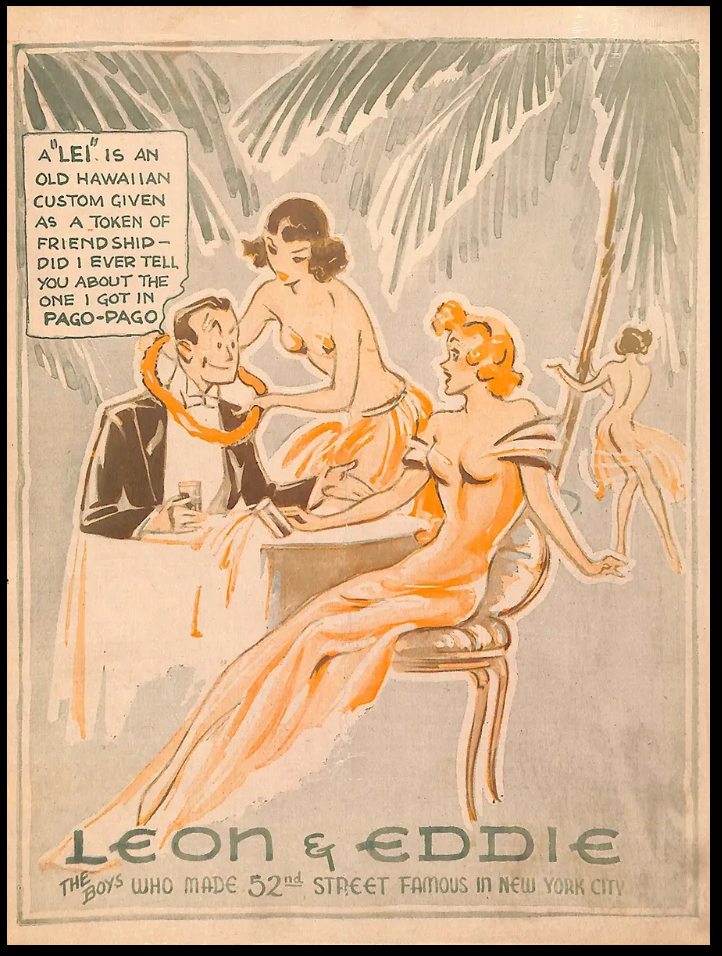
|
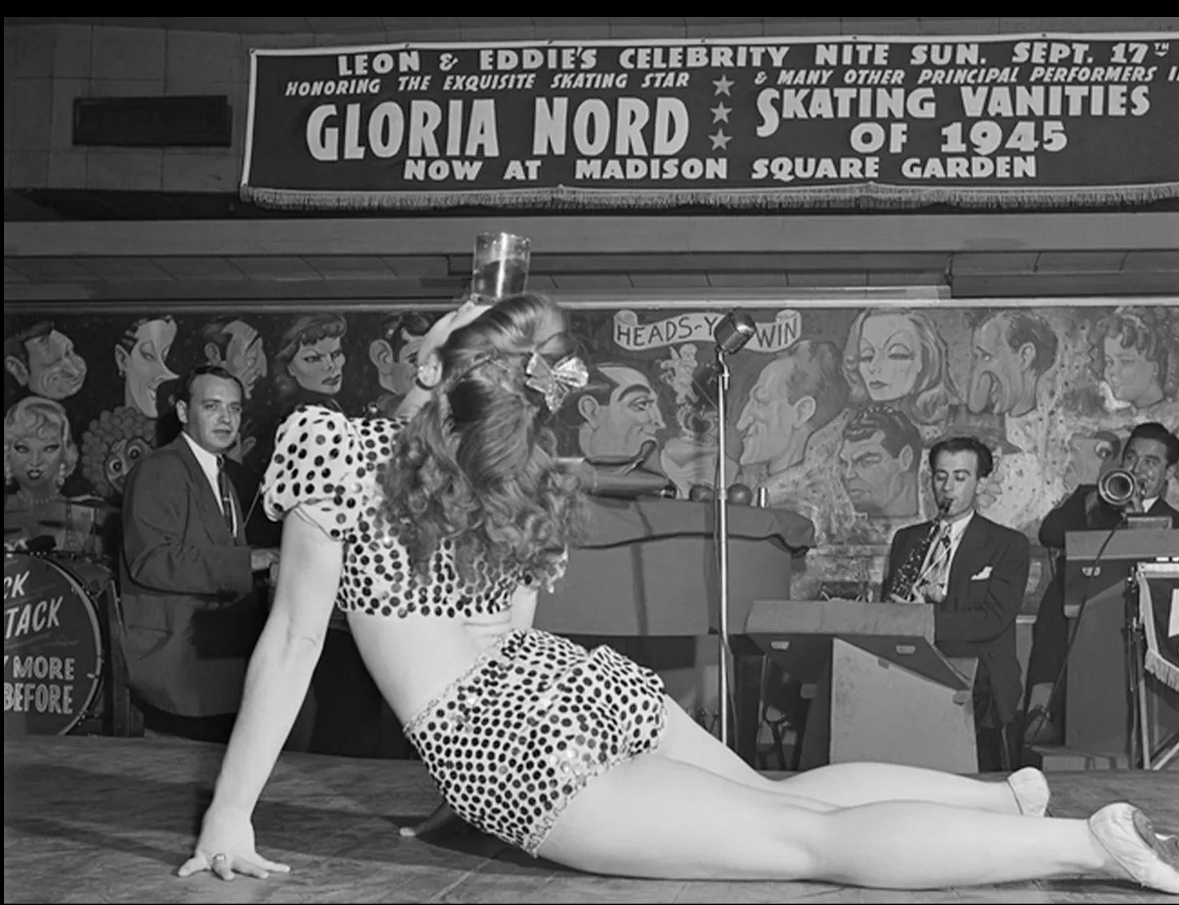
|

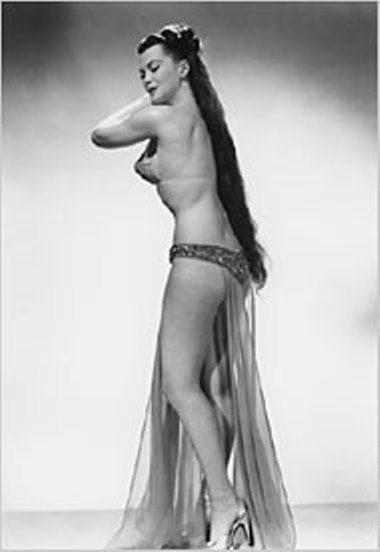
|
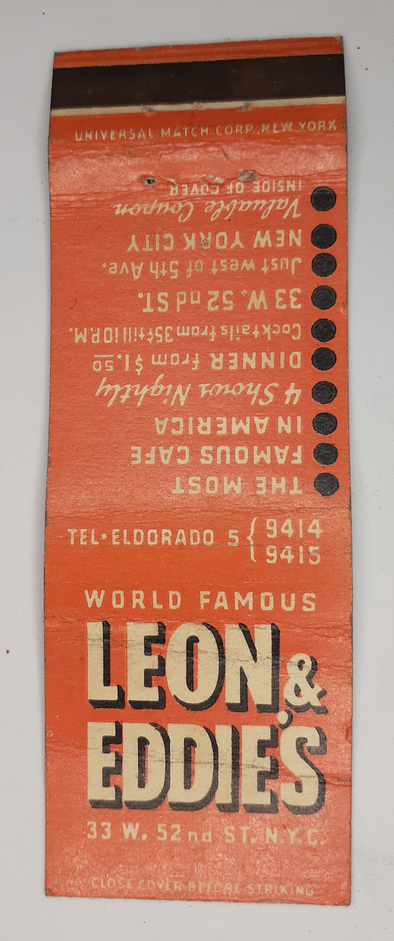
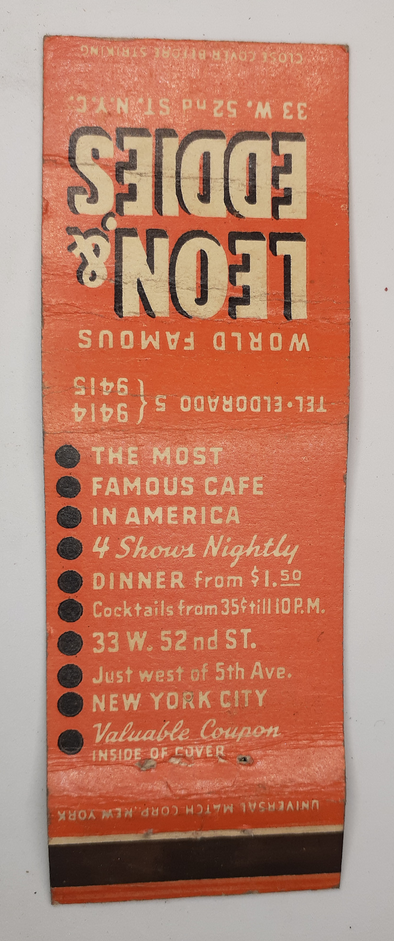
|
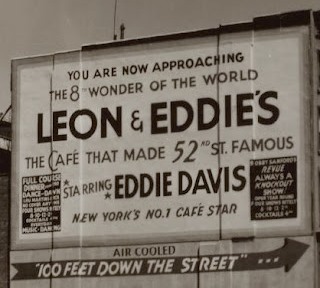
|
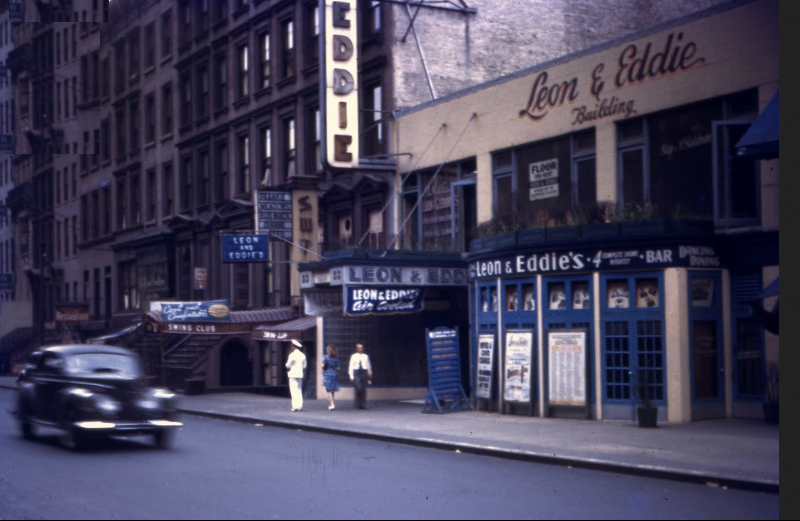
|
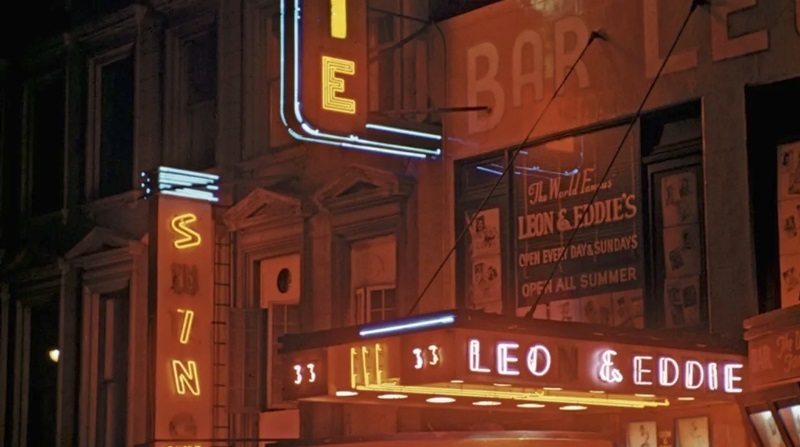
|